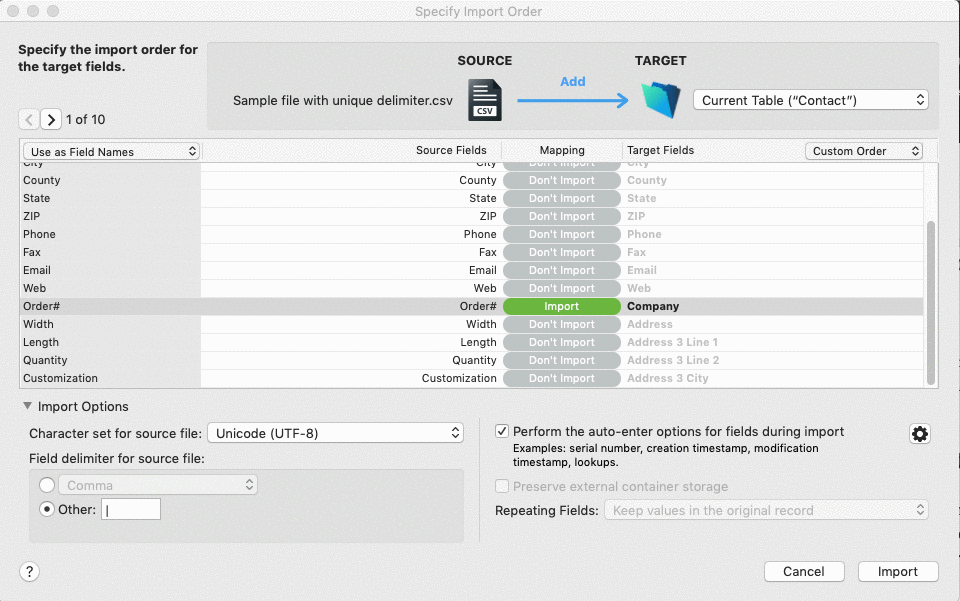

I actually have a support case opened with FileMaker. I have not yet performed the installation as an automatic install. I have ran the Self Service policy twice with the same results. I also saw that when go to the FileMaker Pro Advanced menu in FileMaker, and select About FileMaker, I can see the name associated with the user account under Info. When I run the self service policy from a different Mac, and then launch FileMaker, it's licensed. This is what gave me the idea to package up the license files using the fill user home directory option.
#BUY FILEMAKER PRO LICENSE KEY INSTALL#
When I ran the first install manually, I took note that the license files are owned by the user account that I used to run the FileMaker installer and install the license cert. Under Files and Processes, I entered "jamf policy -event install-fm18". It has the dock item for FileMaker 18 included, and it is set to ongoing frequency. This is the policy that is displayed in Self Service. The third policy is called "FileMaker 18".

When Install FileMaker 18 runs, it installs the FileMaker 18 installer package, and then runs the custom trigger that installs the license files. I then went back to the first policy, and entered "jamf policy -event installfm18lic" in the execute command field in Files and Processes. I set this one to also use a custom trigger, "install-fm18lic". The second policy is called "Install FileMaker 18 License" that deploys the license files to /Users/Shared/FileMaker/FileMaker Pro Advanced/18.0. I scoped the policy to all computers, and set it to ongoing frequency. I set the trigger to custom and entered "install-fm18" as my custom event. The first is a policy called "Install FileMaker 18" that simply runs the FileMaker installer package on the target Mac. The fill user home directories option may not have been needed since the files are not in the user home, but I did it anyway since I noticed that these files are owned by the user who installed FileMaker. I packaged the files into a DMG with the option to fill user home directories. I used Composer to capture the license data that is stored at: /Users/Shared/FileMaker/FileMaker Pro Advanced/18.0.
#BUY FILEMAKER PRO LICENSE KEY MAC#
I installed FileMaker 18 on a Mac VM that I use to build packages. I'm still doing testing, but this may work for everyone. I have been working on this too and here's what I did.

AppleRemoteDesktopDeployment.sh ""Įcho Where "" contains the original FileMaker ProĮcho or FileMaker Pro Advanced installer along with the InstallerPackageWithoutSpaces= echo "$ ARD.pkg"Įcho Usage.

ScriptsFolder=$AppleRemoteDesktopRoot/Scripts #ĪppleRemoteDesktopRoot=$root/AppleRemoteDesktopPackage Output: The output of this script is an installer package named "* ARD.pkg", placed in "", that is suitable for mass deploying FileMaker Pro via Apple Remote Desktop. The other Assisted Install.txt options, such as AI_DISABLEPLUGINS, etc., should be set as needed. The Assisted Install.txt file should contain a username and license key. "" containing a FileMaker Pro or FileMaker Pro Advanced installer and containing an Assisted Install.txt file. For Systems 10.6.x, pkgbuild can be installed on the System by installing XCode available from Apple, Inc. pkgbuild is available by default on OS X Systems 10.7 and greater. The command line tool pkgbuild is required. Where "" contains the original FileMaker Pro or FileMaker Pro Advanced installer along with the Assisted Install.txt file. AppleRemoteDesktopDeployment.sh "" Make it an executable script by changing the permissions of the script via chmod. 2012 Purpose: Create a PackageMaker installer package suitable for mass deploying FileMaker Pro via Apple Remote Desktop. They provided me with a new shell script. Ok, it seems that the script provided doesn't work anymore for the v18 and the cert file.


 0 kommentar(er)
0 kommentar(er)
